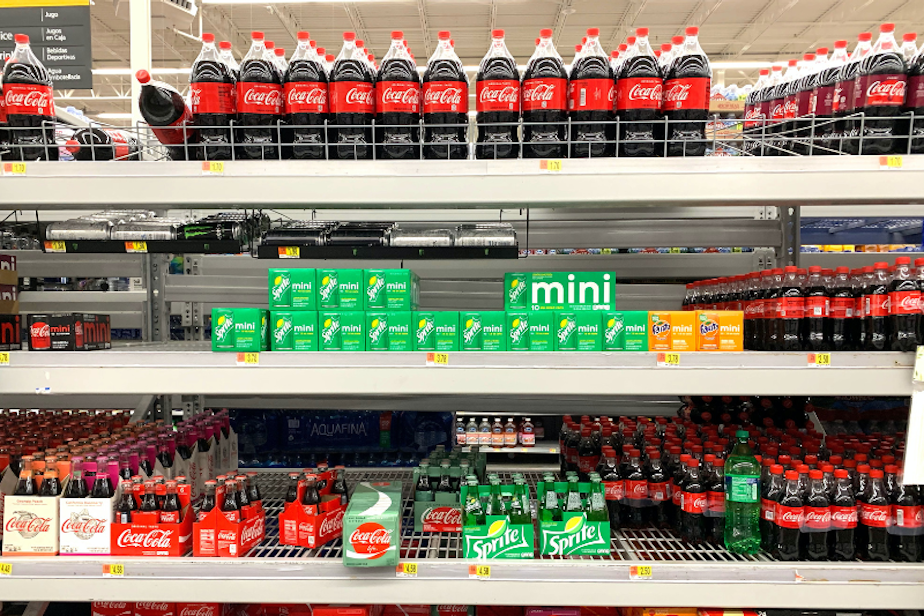Audit cracks open what's worked, and fizzled on Seattle soda tax

Years after Seattle passed a tax on sugary drinks, it's consumers — not businesses — taking on the cost.
The city of Seattle released a series of audit documents on its soda tax this year, with the most recent reports on Monday. The findings have shown the tax is delivering on some of its promises, but may not be as effective as hoped at reducing demand.
One concern when the tax took effect in 2018 was higher costs for stores. That has not been a problem for small stores and independent convenience stores. The city's auditors found "no evidence of a loss of gross revenue among Seattle stores."
Sponsored
Jesse Jones-Smith, an associate professor at the University of Washington's School of Public Health, has tracked the policy since its inception.
"We evaluated whether the tax had an impact on small business revenue, and small store closures, and we found no impact on either of those two things," Jones-Smith said.
That's because customers, not stores, are paying the price.
Stores have, on average, passed the soda tax onto customers by raising prices on sweetened drinks. Drinks are more expensive in Seattle than in surrounding communities without the tax.
Sponsored
The audit further discovered that Seattle stores are also charging slightly more for sugar-free drinks, like diet pop and sugar-free energy drinks, compared to nearby cities.
Auditors scanned hundreds of stores, recording the prices of thousands of drinks in 2018 and again in 2020.
Sponsored
Consumption is another measure of whether the tax has been successful. Numerous reports have shown that, indeed, people are drinking fewer sugary drinks in Seattle than before the tax took effect. But, there's a new caveat. People in surrounding cities have also tamed their sweet drink habits, according to the audits.
Jones-Smith said we may not be able to point to the tax itself as the reason for healthier drinking habits. She said there is evidence that Seattle residents have noticed the higher costs for soda and sugar-added coffees and teas, but the lowered demand could have more to do with the marketing of the tax.
"People in our study and the comparison area reported that they were exposed to media coverage of the tax and of health concerns around these sugary beverages," Jones-Smith said.
Either way, people are buying less soda, sugary coffee drinks, syrups, and juice with added sugar.
Sponsored
That's led to a healthier community. The audits conclude that the tax and its messaging had a positive influence on adult and children body mass index, or BMI, in Seattle.
The Seattle City Council passed the tax in 2017, after recommendation from former Mayor Ed Murray and then City Councilmember Tim Burgess.
Councilmember Lisa Herbold voted against it — the council's only "no" vote. Critics worried about the tax falling disproportionately on lower-income communities, and cutting into the bottom lines of small stores.




